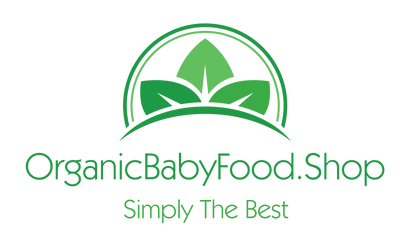
The importance of becoming a label detective to detect bad ingredients in baby formula?
We are strong believers that organic baby food is by far the best, safest and healthiest choice for your baby. However, should you choose to feed your baby non-organic food it is essential for your baby's health that you become a label detective.
Unfortunately, the following bad ingredients are still used in baby formula, so when reading your baby's food label, it is extremely important you always avoid them and here is why:
Carrageenan used as a thickening agent in many foods including baby formula, studies have linked these bad ingredients to cause tumors and ulcers in mice, and the University of Berkley California even linked it to human cancer.
Synthetic DHA and ARA: These synthetic fatty acids are believed to cause gastrointestinal distress.
Sucrose: In order for babies to digest the formula, all formulas generally contain some kind of added sugar but not all sugars are the same. Sucrose can be harmful to your baby and can lead to sugar cravings later in life. Our organic formulas are sweetened with either lactose-only (Lebenswert Stage 1 and Holle Pre) or maltodextrine, which is a slow-digesting starch to help babies feel full longer.
Soy: According to the American Academy of Pediatrics (AAP) there is no reason you should feed your baby Soy unless it suffers from a diagnosed lactose allergy. Most soy in the US is genetically modified and contains an alarming amount of pesticides. Due to the high level of phytoestrogens after being feed soy for a longer period of time it may lead to abnormalities in your baby's thyroid function, immune function, and brain development.
Other bad ingredients to strongly avoid in baby formulas are:
Synthetic Nutrients: such synthetic ingredients are neurotoxic and processed with harmful chemicals that are also known as carcinogens. L-Carnitine to name just one, which was also banned by the National Organic Standards Board. Babies that have been feeding on these toxin-rich formulas are at high risk to suffer from chronic disease as they grow up.
Dioxin: is found in non-organic Formula milk and is a known cancer-causing agent and endocrine disruptor.
Genetically Modified Ingredients: also known as GMO, has been associated with cancer, organ failure and birth defects. Unfortunately, this controversial ingredient is still found in many non-organic formulas that include corn syrup and sugar that are often genetically modified.
Melamine: Although the World Health Organization (WHO) does not approve the use of it in food products, America still allows its usage in formula milk. Babies exposed to this highly toxic ingredient, have suffered from kidney failure and 6 even died in 2008.
Arsenic: Yes, you have not read wrong! Another bad ingredient found in baby formula is indeed Arsenic.
While nowadays it seems to be near to impossible to completely avoid chemicals and toxins exposure, we are what we eat! Limiting dangerous ingredients especially in the most important stage of your baby's life is essential to ensure healthy growth and happy healthy future life. Luckily none of the organic baby formula or organic baby cereal we carry contains any of these toxic ingredients!
Leave a comment
Comments will be approved before showing up.
Also in Organic Baby Food Shop Blog

Troubles With Latching

Breast vs Bottle: How to Navigate Guilt Surrounding Feeding Choices

Differences Between Holle Pre Formula & Holle Stage 1
Being able to compare and contrast the differences between various organic baby formulas is key for finding the one that is right for your baby. Taking into consideration your baby’s developmental needs, along with the nutrient contents in a specific formula, is a great place to start! If you are trying to decide specifically whether the European Holle Pre Formula or Holle Stage 1 would be best suited for your baby, here are some points to consider.
